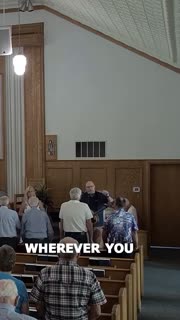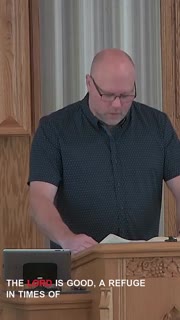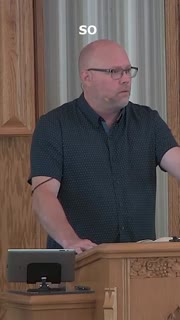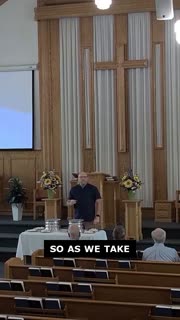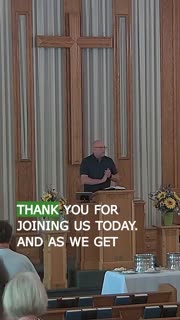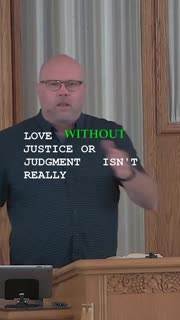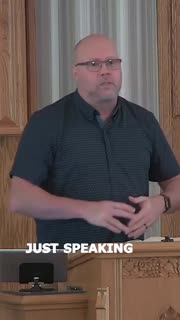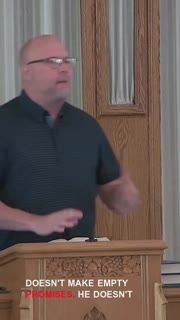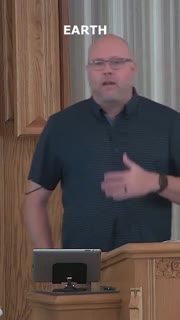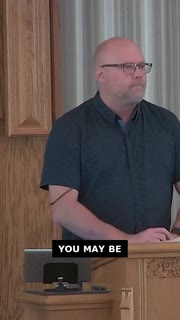Trusting God's Justice: Lessons from Nahum and Communion
Devotional
Sermon Summary
Bible Study Guide
Sermon Clips
### Quotes for outreach
1. "Wherever you are, If you're having a difficult season, God has promised not to leave you there. God has promised that he will bring his people back up. And we wait on that. And we pray, That he moves." [09:20] (15 seconds)
2. "The Lord is good, a refuge in times of trouble. He cares for those who trust him and he cares for those who trust in him. But with an overwhelming flood, he will make an end of the world. He will pursue his foes into darkness." [31:53] (18 seconds)
3. "So as you're sitting here today, I hope you're encouraged that if you have been faithful to God and trying and wrestling with God, he will not let you down. He has promised. And this meal here is to remind us of that. It is to remind us that he is good, and it is good to be in his refuge." [57:14] (29 seconds)
4. "So as we take the cup today, we're reminded that no matter what the world tells you, you are who God says you are. Your identity is safe in Jesus." [01:12:36] (17 seconds)
5. "Thank you for joining us today. And as we get ready to leave this place, I pray that you're encouraged that justice will be done one day. It may not be on our timeframe, but it will happen. And I pray that you are also in the arms trusting God, the Father, through Jesus Christ the Son, with the indwelling of the Holy Spirit." [01:23:08] (29 seconds)
### Quotes for members
1. "Love without justice or judgment isn't really love. If you really loved someone that was wronged in a horrific way, would you not want to right that wrong? Would you not want to get justice? Would you not want things to be made whole? And I hope you understand, the answer is you do. Everyone does. It's hardwired in all of humanity." [27:47] (27 seconds)
2. "Nahum wasn't just speaking out of the air. He wasn't giving a good political speech about what he is and isn't going to do. And then not being able to follow through. Nahum spoke the word of the Lord and the Lord destroyed Nineveh. He came through on his promise. And what we can pull from this is that one is God is sovereign and just." [37:01] (27 seconds)
3. "God doesn't make empty promises. He doesn't react. But he enacts perfect justice at the correct time. And we often want the correct time to be now. But in reality, the correct time is when God is saying it's correct. Jonah wanted justice to be done in Jonah's time. But God was saying, no. Justice will come. But it will be when I decide." [46:18] (35 seconds)
4. "Our times on earth will come and go, but trusting in the Lord is the only way to have sure kingdom forever. I love living in America. I would not want to trade living here for anywhere else. But we need to be careful not to put our hope in our nation or our superpower because of our power. God will choose at some point in history to say America will be no more. I have pretty good confidence in that. But he will never choose to say the church will be no more." [53:03] (45 seconds)
5. "You may be sitting here today and going, man, I feel like I've been guilty of being Nineveh. I feel like I've been guilty of being oppressive. Every one of us has. And here's what we should be thinking. Uh-oh. Because I remember when I first came to Christ and I had grown up in the church, you know that. And I felt like a good person. But as I read scripture, I realized that I wasn't near as good as I thought I was." [55:38] (40 seconds)
Ask a question about this sermon
1. "Wherever you are, If you're having a difficult season, God has promised not to leave you there. God has promised that he will bring his people back up. And we wait on that. And we pray, That he moves." [09:20] (15 seconds)
2. "The Lord is good, a refuge in times of trouble. He cares for those who trust him and he cares for those who trust in him. But with an overwhelming flood, he will make an end of the world. He will pursue his foes into darkness." [31:53] (18 seconds)
3. "So as you're sitting here today, I hope you're encouraged that if you have been faithful to God and trying and wrestling with God, he will not let you down. He has promised. And this meal here is to remind us of that. It is to remind us that he is good, and it is good to be in his refuge." [57:14] (29 seconds)
4. "So as we take the cup today, we're reminded that no matter what the world tells you, you are who God says you are. Your identity is safe in Jesus." [01:12:36] (17 seconds)
5. "Thank you for joining us today. And as we get ready to leave this place, I pray that you're encouraged that justice will be done one day. It may not be on our timeframe, but it will happen. And I pray that you are also in the arms trusting God, the Father, through Jesus Christ the Son, with the indwelling of the Holy Spirit." [01:23:08] (29 seconds)
### Quotes for members
1. "Love without justice or judgment isn't really love. If you really loved someone that was wronged in a horrific way, would you not want to right that wrong? Would you not want to get justice? Would you not want things to be made whole? And I hope you understand, the answer is you do. Everyone does. It's hardwired in all of humanity." [27:47] (27 seconds)
2. "Nahum wasn't just speaking out of the air. He wasn't giving a good political speech about what he is and isn't going to do. And then not being able to follow through. Nahum spoke the word of the Lord and the Lord destroyed Nineveh. He came through on his promise. And what we can pull from this is that one is God is sovereign and just." [37:01] (27 seconds)
3. "God doesn't make empty promises. He doesn't react. But he enacts perfect justice at the correct time. And we often want the correct time to be now. But in reality, the correct time is when God is saying it's correct. Jonah wanted justice to be done in Jonah's time. But God was saying, no. Justice will come. But it will be when I decide." [46:18] (35 seconds)
4. "Our times on earth will come and go, but trusting in the Lord is the only way to have sure kingdom forever. I love living in America. I would not want to trade living here for anywhere else. But we need to be careful not to put our hope in our nation or our superpower because of our power. God will choose at some point in history to say America will be no more. I have pretty good confidence in that. But he will never choose to say the church will be no more." [53:03] (45 seconds)
5. "You may be sitting here today and going, man, I feel like I've been guilty of being Nineveh. I feel like I've been guilty of being oppressive. Every one of us has. And here's what we should be thinking. Uh-oh. Because I remember when I first came to Christ and I had grown up in the church, you know that. And I felt like a good person. But as I read scripture, I realized that I wasn't near as good as I thought I was." [55:38] (40 seconds)
